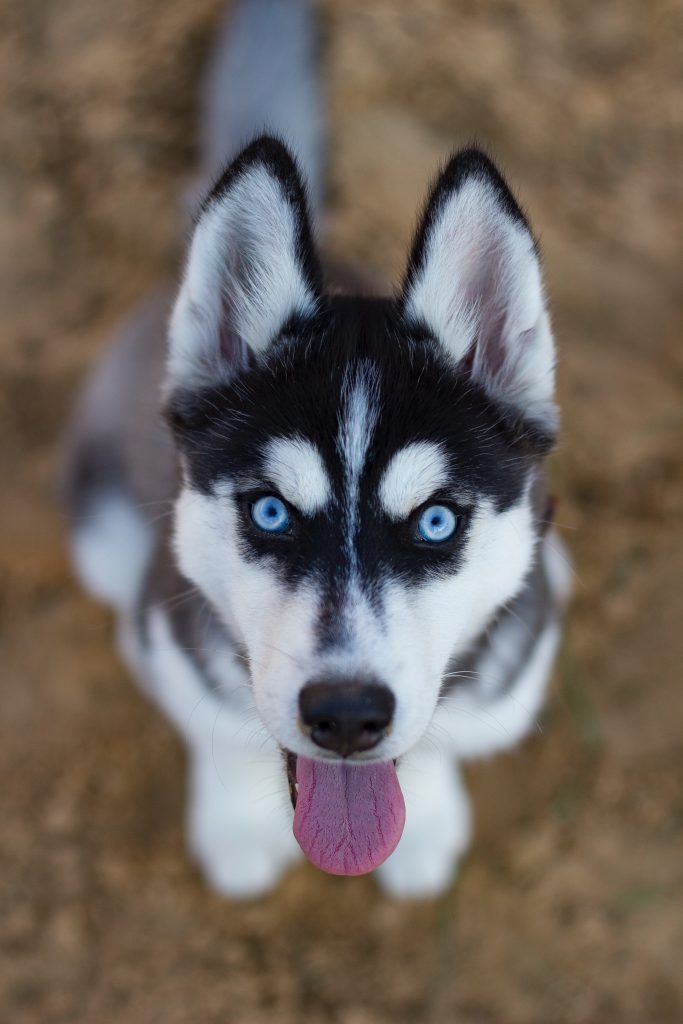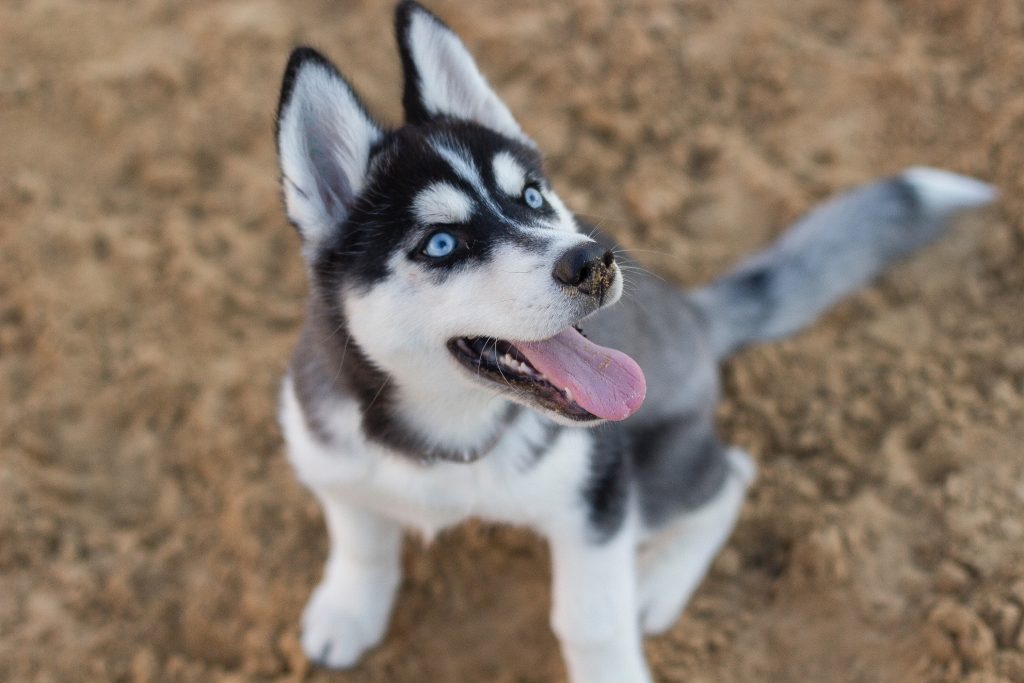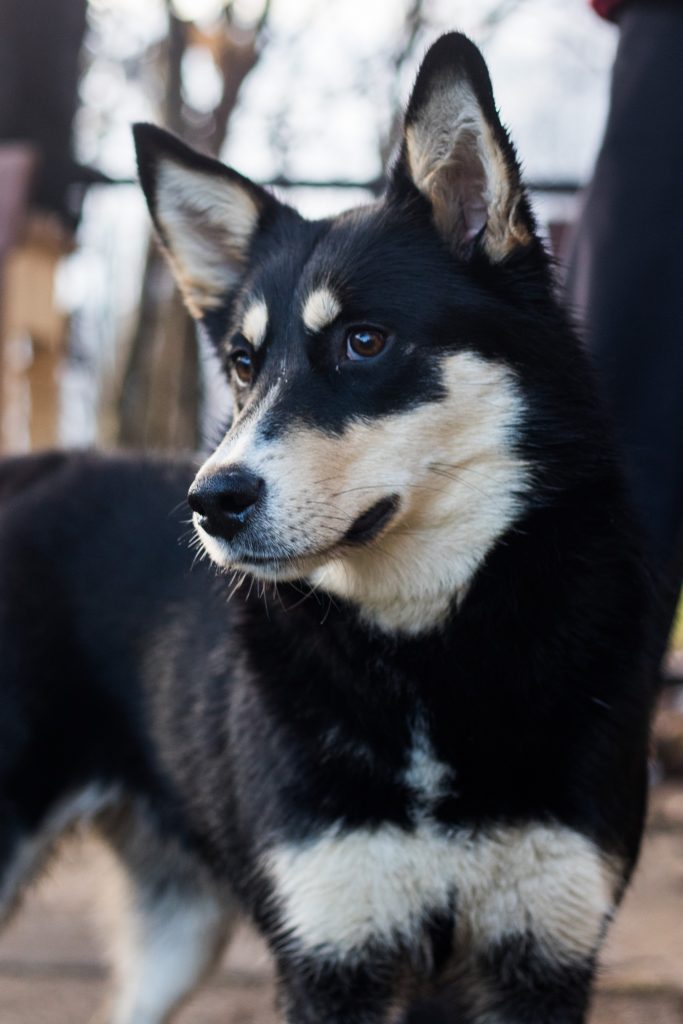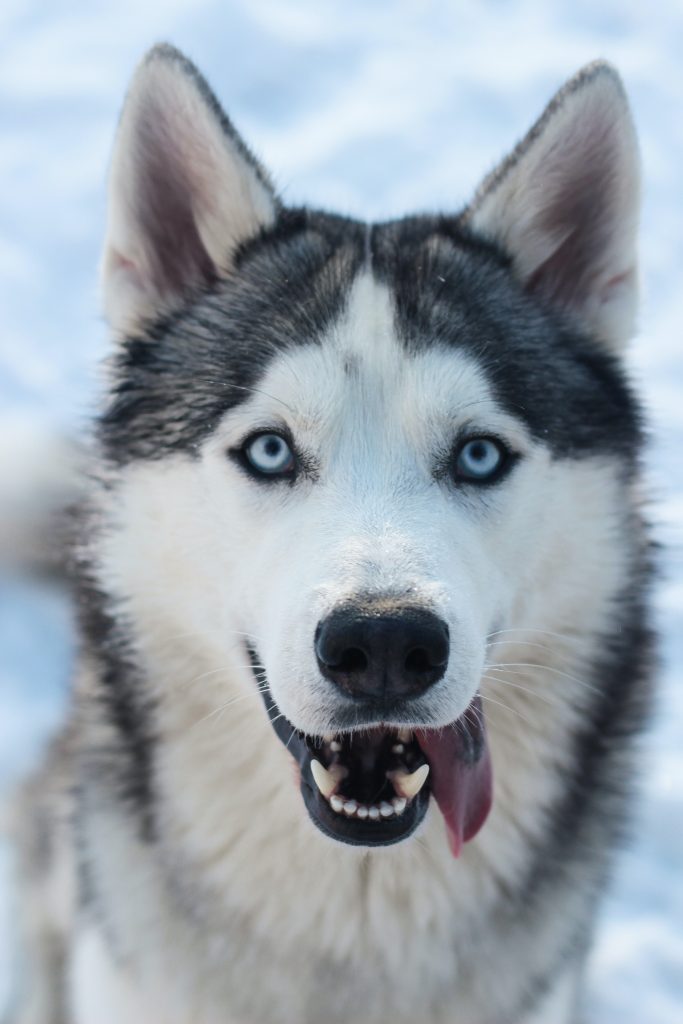Ever wondered how long do huskys live? On average, the adorable, energetic Siberian Huskies live for about 12-14 years. This blog post will provide insights into factors that can impact a Husky’s lifespan and also tips on how you can help your furry friend lead a longer, healthier life.
Ready to ensure a happy and thriving life for your four-legged companion? Let’s dive in!

Key Takeaways
- On average, Siberian Huskies live for about 12 – 14 years.
- Factors that can impact a Husky’s lifespan include breeding, diet and nutrition, exercise and physical activity, and regular veterinary check-ups.
- Common health issues for Huskies include cataracts, Progressive Retinal Atrophy (PRA), corneal dystrophy, hypothyroidism, and hip dysplasia.
- To extend the lifespan of a Husky, provide proper care and grooming, ensure regular exercise and mental stimulation, feed them a balanced and nutritious diet, and prioritize early detection and treatment of health issues.
Factors that Affect Husky Lifespan
Breeding, diet and nutrition, exercise and physical activity, and regular veterinary check-ups all contribute to the lifespan of Huskies.
Breeding
Good breeding helps huskies stay healthy. It plays a big role in their health and lifespan. Many breeders test husky parents for bad genes before having puppies. They don’t let sick dogs have puppies.
That’s why buying from good breeders can help you get a strong, long-lived husky.
Diet and nutrition
A healthy diet and proper nutrition play a crucial role in extending the lifespan of Huskies. Feeding your Husky high-quality dog food that is specifically formulated for their nutritional needs is important.
A balanced diet that includes protein, carbohydrates, fats, vitamins, and minerals will help keep them healthy and strong. Make sure to follow portion control guidelines to prevent overeating and obesity.
Providing fresh water at all times is also essential for their well-being. Remember to consult with your veterinarian to determine the best diet plan for your Husky based on their age, weight, activity level, and any specific health concerns they may have.
Exercise and physical activity
Regular exercise and physical activity are essential for maintaining the health and well-being of your Husky. These energetic dogs require daily exercise to stay happy and fit. Taking them for walks or runs, playing fetch, or engaging in other activities that allow them to burn off their energy is important.
Aim for at least 30 minutes to an hour of exercise each day, but keep in mind that individual needs may vary. Providing mental stimulation through puzzle toys or obedience training can also help keep your Husky engaged and prevent boredom.
Regular activity not only helps manage weight but also contributes to a longer lifespan by reducing the risk of obesity-related health issues like joint problems and heart disease.
Regular veterinary check-ups
Veterinary check-ups are essential for the health and well-being of your Husky. These check-ups help catch any potential health issues early on, ensuring prompt treatment and preventing them from becoming more serious.
During these visits, your vet will conduct a thorough examination, including checking for any signs of illness or disease. They may also recommend vaccinations and preventive measures to keep your Husky protected against common canine ailments.
By staying proactive with regular veterinary check-ups, you can help extend the lifespan of your beloved Husky and ensure they live a happy and healthy life by your side.

Common Health Issues for Huskies
Huskies are prone to several common health issues, including cataracts, Progressive Retinal Atrophy (PRA), corneal dystrophy, hypothyroidism, and hip dysplasia. Understanding these health concerns is crucial for ensuring the well-being and longevity of your Husky.
Cataracts
Common health issue that can affect Huskies. Cataracts cause cloudiness in the lens of the eye, which can lead to blurred vision or even blindness. It is important to note that cataracts can occur at any age, but they are more common in older dogs.
Veterinary check-ups can help detect cataracts early on and proper treatment options can be explored. With timely intervention and appropriate medical care, many dogs with cataracts can continue to have a good quality of life.
In short,
– Cataracts are cloudy lenses in the eyes.
– They can cause blurry vision or blindness.
Progressive Retinal Atrophy (PRA)
Progressive Retinal Atrophy (PRA) is a common health issue in Huskies that can affect their eyesight. PRA causes the cells in the retina to deteriorate over time, leading to progressive vision loss and eventual blindness.
It usually starts with night blindness and gradually progresses to complete blindness. Unfortunately, there is no cure for PRA, but early detection through regular veterinary check-ups can help manage the condition and provide supportive care for your Husky’s changing needs.
Corneal Dystrophy
Corneal dystrophy is a common health issue in Huskies. It affects the clear outer layer of the eye, called the cornea. This condition causes cloudy or hazy spots to develop on the cornea, which can affect a dog’s vision.
While corneal dystrophy is not usually painful, it can progress over time and lead to more serious complications if left untreated. Regular veterinary check-ups are important for early detection and treatment of this condition.
Taking good care of your Husky’s overall health can help prevent and manage corneal dystrophy, ensuring that they live a long and healthy life.
Hypothyroidism
Hypothyroidism is a common health issue that can affect Huskies. It occurs when the thyroid gland doesn’t produce enough hormones to regulate the body’s metabolism. This can lead to symptoms like weight gain, lethargy, and skin problems.
Although it cannot be cured, it can be managed with medication and regular check-ups with a veterinarian. By detecting hypothyroidism early and following a prescribed treatment plan, you can help your Husky live a longer and healthier life.
Hip Dysplasia
Hip dysplasia is a common health issue that can affect Huskies. It occurs when the hip joint doesn’t develop properly, causing pain and mobility problems. This condition can be hereditary or caused by factors like rapid growth, obesity, or injury.
Symptoms of hip dysplasia include difficulty in walking or getting up, lameness in the hind legs, and reluctance to exercise. Regular veterinary check-ups and early detection are important for managing this condition.
Treatment options may include medication, physical therapy, weight management, and in severe cases, surgery. Keeping your Husky at a healthy weight and providing regular exercise can help reduce the risk of developing hip dysplasia.

Extending the Lifespan of Huskies
Proper care, regular exercise, balanced diet, and early treatment of health issues can help increase the lifespan of Huskies. Want to know more about how you can ensure a long and healthy life for your furry friend? Read on!
Proper care and grooming
To ensure your Husky lives a long and healthy life, it is important to provide proper care and grooming. Here are some tips:
- Keep their coat clean and well – maintained by regularly brushing it. This helps prevent matting and keeps their skin healthy.
- Bathe your Husky only when necessary, as frequent bathing can strip their coat of its natural oils.
- Trim their nails regularly to avoid discomfort or injury.
- Clean their ears weekly to prevent infections. Use a vet-approved ear cleaning solution and gently wipe the inside of their ears with a cotton ball.
- Brush your Husky’s teeth daily or at least three times a week to maintain good oral health. Use a dog toothbrush and toothpaste made specifically for dogs.
- Provide them with regular exercise to keep them mentally stimulated and physically fit. Take them for walks, runs, or play games like fetch.
- Ensure they have access to fresh water at all times and feed them a balanced diet that meets their nutritional needs.
Regular exercise and mental stimulation
Regular exercise and mental stimulation are vital for ensuring the well-being and longevity of your Husky. Here are some key ways to incorporate these activities into your dog’s routine:
- Take your Husky for daily walks or runs to keep them active and prevent weight gain.
- Engage in interactive play sessions with toys that challenge their problem-solving skills, like puzzle toys or treat-dispensing toys.
- Consider participating in activities such as agility training or obedience classes to provide mental stimulation and strengthen the bond between you and your Husky.
- Provide plenty of opportunities for socialization with other dogs and people, as this helps keep their mind engaged and prevents behavioral issues.
- Vary their exercise routine to include different environments, such as parks or hiking trails, to keep them mentally stimulated by exploring new surroundings.
- Set aside dedicated playtime each day where you can engage in games like fetch or tug-of-war, which not only provide physical exercise but also stimulate their senses.
Balanced and nutritious diet
A balanced and nutritious diet is vital for extending the lifespan of your Husky. Providing them with high-quality dog food that is specifically formulated for their needs can help promote their overall health and well-being.
Make sure to choose a food that contains real meat as the main ingredient, as this will provide them with essential nutrients like protein. Avoid foods with artificial additives or fillers that may not be beneficial for your Husky’s health.
Additionally, portion control is important to prevent overfeeding and obesity, which can lead to various health issues. Regularly check your Husky’s weight and adjust their diet accordingly.
Early detection and treatment of health issues
Taking care of your Husky’s health is crucial in extending their lifespan. Here are some important steps to ensure early detection and treatment of any health issues:
- Regular Vet Check-ups: Schedule regular visits to the veterinarian for check-ups and vaccinations. This helps identify any potential health problems before they become serious.
- Watch for Signs: Keep an eye out for any changes in your Husky’s behavior, appetite, or energy levels. If you notice anything unusual, it’s important to seek veterinary advice.
- Routine Testing: Regularly conduct routine tests recommended by your vet, such as blood tests and X-rays. These tests can help detect underlying health issues early on.
- Dental Care: Pay attention to your Husky’s dental health. Regularly brush their teeth and provide chew toys to keep their teeth clean and healthy.
- Spay/Neuter: Consider spaying or neutering your Husky. This can help prevent certain health issues and increase their overall lifespan.

Conclusion
Huskies have an average lifespan of 12-14 years, with some living up to 16 years. Proper care, including a balanced diet and regular exercise, can help extend their life expectancy.
Early training and socialization are also important for their well-being. While they may face common health issues like cataracts or hip dysplasia, overall Huskies are considered a healthy breed for their size.
By providing them with the right care and attention, you can ensure that your Husky lives a long and happy life.
FAQs
1. How long do Huskies live on average?
The average lifespan of Siberian Huskies and other types of Husky breed is around 12 to 15 years.
2. What are some factors that affect the lifespan of a Husky?
Factors like good quality dog food, active lifestyle, positive training, and socialization can greatly influence the longevity of the Husky breed.
3. Are there health problems that could shorten a Husky’s life span?
Yes, Siberian huskies can face common canine health issues such as eye conditions or hip dysplasia which may impact their overall lifespan.
4. Can you make a comparison between the lifespans of different dog breeds?
In general, medium-sized dogs like huskies have longer lifespans than large dog breeds but shorter than smaller ones.
5. Do Miniature Siberian huskies live longer than regular-sized ones?
No necessary link says miniature huskies live more compared to typical sized ones; it mainly depends on wellness factors same for all dogs sizes.
6. Any tips for increasing my Husky’s lifespan?
Providing your pet with an active lifestyle including regular exercise, feeding them quality food and early training could help increase your husky’s life expectancy.


